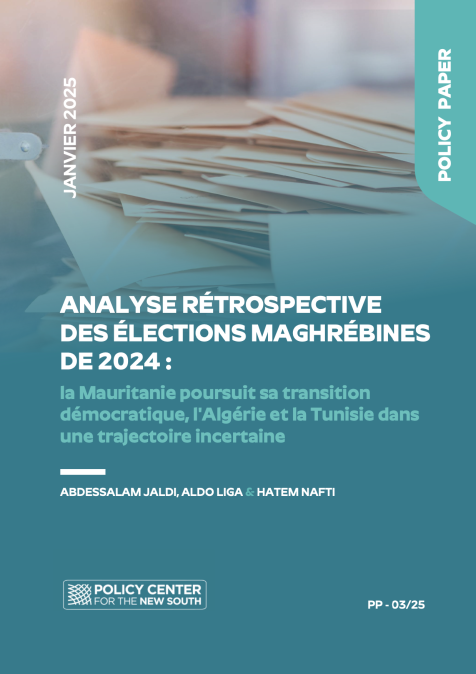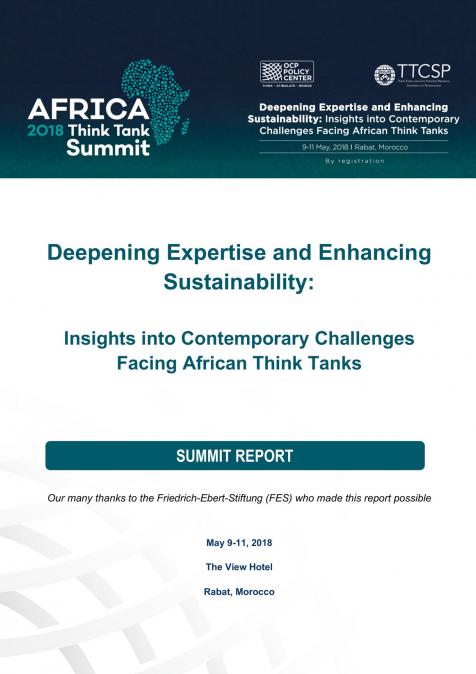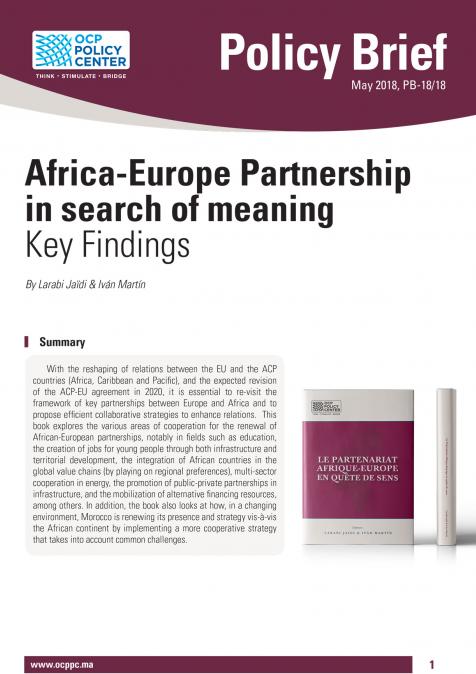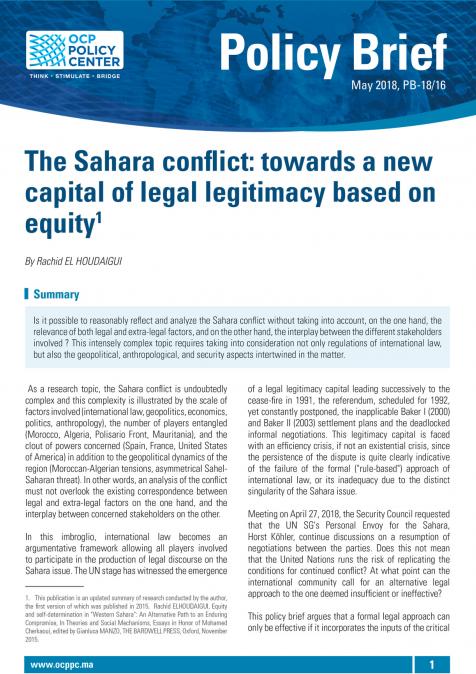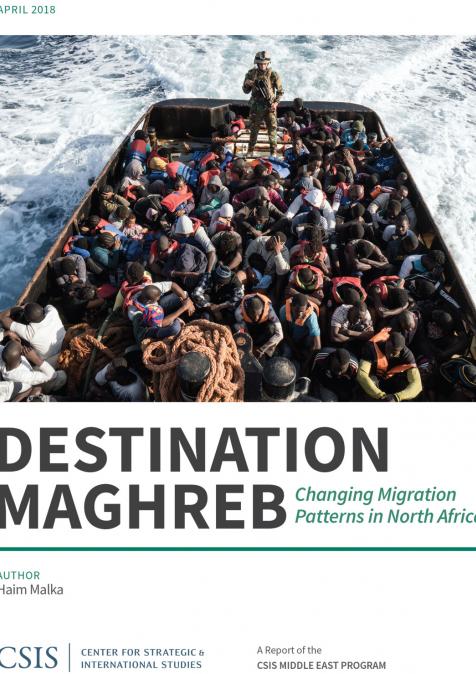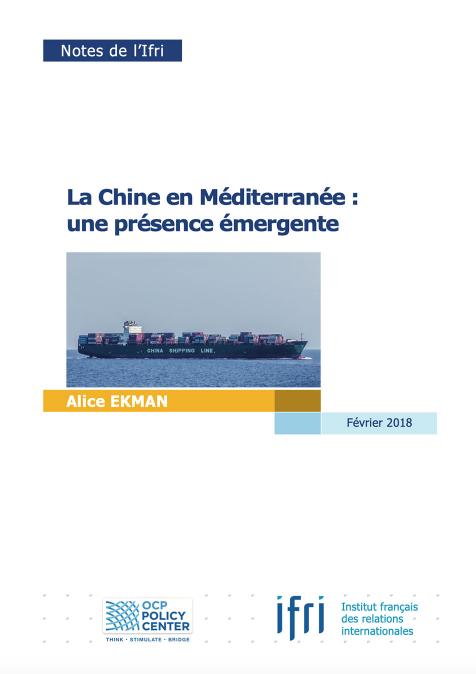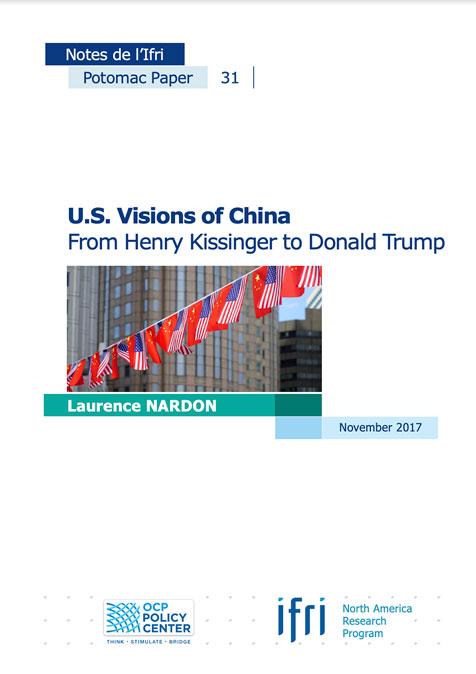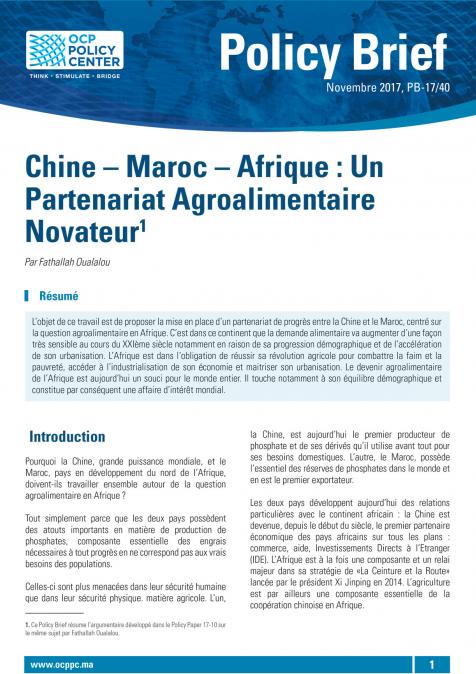Publications /
Policy Paper
L'année 2024 a été marquée par des élections présidentielles cruciales en Algérie, en Mauritanie et en Tunisie. À Nouakchott, Mohamed Ould El- Ghazouani a été réélu avec 56 % des voix, malgré une baisse de participation, ce qui devrait lui permettre de poursuivre les réformes économiques et démocratiques structurelles. À Alger, Abdelmadjid Tebboune a obtenu sa réélection dans un climat de désillusion, avec une abstention record de 53,90 %, reflet des frustrations populaires face aux défis économiques et à l'héritage du Hirak. En Tunisie, Kais Saïed a été réélu avec un score soviétique de 91 %, mais avec un taux de participation bas record de 28,80 %, soulignant le rejet croissant du système de la IIIe République qu’il a instauré depuis son coup de force de 2021. Ces élections, notamment en Algérie et en Tunisie, révèlent des fractures profondes entre les aspirations citoyennes et les dynamiques politico-économiques en cours, mettant en évidence la nécessité de réformes inclusives pour répondre aux défis des trois pays du Maghreb, dans un contexte régional et international morose.

